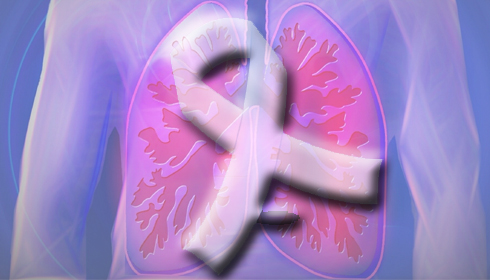
Experimental Drug Shows Promise in Lung Cancer Treatment, Halves Risk of Progression in Phase 3 Trial
Summit Therapeutics, a Miami-based small biotechnology company, developed an investigational medication that reduced the risk of lung cancer progression by 49% in a Phase 3 clinical trial. The research, which compared Summit's medicine, ivonescimab, against the dominating immunotherapy Keytruda (from Merck & Co.), involved patients with advanced non-small cell lung cancer (NSCLC). The World Conference on Lung Cancer (WCLC) in San Diego hosted the presentation of the findings.
Summit's medicine kept tumours at bay for an average of 11 months, compared to only six months for those taking Keytruda, yielding a substantial 5.3-month difference in progression-free survival (PFS). The trial encompassed 398 patients with recently diagnosed advanced NSCLC, whose tumours expressed the PD-L1 protein in at least 1% of cancer cells. This protein interacts with PD-1 to protect tumours from the immune system.
The trial's findings have sparked excitement in the medical community, with Gilberto Lopes, chief of medical oncology at the University of Miami's Sylvester Comprehensive Cancer Centre, remarking, "It's not every day that we see a drug improve median progression-free survival by nearly six months." He also described the findings as "a positive study."
John Heymach, chair of thoracic, head, and neck oncology at the MD Anderson Cancer Centre, shared this enthusiasm, stating, "The fact that there's such a difference between these two immunotherapies is quite notable, particularly because it doesn't come with new or unexpected toxicity."
Unlike Keytruda, which inhibits the PD-1 protein to aid the immune system in attacking tumours, ivonescimab targets both PD-1 and VEGF, a molecule in tumour growth. This dual mechanism could explain its superior efficacy in halting tumour progression. While other medications suppress VEGF, ivonescimab stands out due to its ability to target both PD-1 and VEGF in a single therapy.
Despite the positive results, certain restrictions should be considered. The trial did not compare ivonescimab to Keytruda and chemotherapy, the current standard of care for most patients with advanced NSCLC. Concerns about the data's applicability to more diverse populations arise from the trial's limitation to China.
Lopes added, "We truly don't know if it's better than Keytruda plus chemo." The lack of a comparison to the more often used combination therapy may limit ivonescimab's appeal in worldwide markets, notably in the United States, where FDA clearance would most likely necessitate additional trials.
Summit has already launched worldwide research to address these concerns, comparing ivonescimab and chemotherapy versus Keytruda plus chemotherapy. We expect the trial results in 2027. Meanwhile, the biotech company intends to undertake another trial to compare ivonescimab to Keytruda in individuals with tumours that exhibit high amounts of PD-L1.
While ivonescimab has demonstrated outstanding efficacy in slowing cancer progression, the study also identified several negative effects of its treatment. Treatment-related adverse effects classified as "serious" occurred in around 21% of participants who received ivonescimab, compared to 16% of those given Keytruda. Common side effects of VEGF inhibitors include hypertension and proteinuria (elevated protein levels in the urine).
According to Jyoti Malhotra, the director of thoracic medical oncology at City of Hope Orange County, the removal of the medication's VEGF-blocking component often controls these adverse effects. However, because ivonescimab inhibits both PD-1 and VEGF in a single medication, addressing these adverse effects may be more difficult.
Summit Therapeutics, a 21-year-old biotechnology company, has made many strategy changes in recent years. After turning away from developing a muscular dystrophy treatment and then an antibiotic, both of which failed in clinical trials, the business has now shifted its attention to oncology under the direction of Robert Duggan, who previously sold his biotech company Pharmacyclics for $21 billion.
The Phase 3 trial result for Ivonescimab is an important milestone for Summit, establishing the medicine as a potential new standard of care for patients with advanced lung cancer. However, some oncologists have noted that additional trials comparing the drug to current combination therapy and demonstrating a survival benefit will determine its final success.